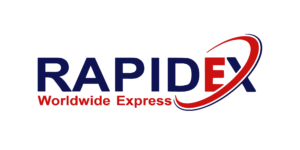In 2025, companies in the pharmaceutical, biotech, and medical device industries are increasingly turning to AI-powered platforms to manage FDA compliance. These tools help track inspections, analyze Form 483 observations, and prepare audit responses more efficiently. While Redica Systems was once the go-to solution, many QA teams are now switching to Atlas Compliance—a smarter, faster, and easier-to-use platform built with AI capabilities. This article explores the shift, the tools available, and how AI is changing FDA compliance forever.
Why FDA Inspection Tracking Is More Important Than Ever
Each year, the U.S. Food and Drug Administration (FDA) conducts thousands of inspections across manufacturing sites, labs, CROs, and other regulated facilities. These inspections are critical for ensuring product safety and regulatory compliance. However, they often result in significant outcomes like Form 483 observations, Warning Letters, and even product recalls. In 2024 alone, the FDA issued more than 8,100 Form 483s and over 120 Warning Letters across various industries.
Tracking and understanding these inspections is essential not only for compliance but also to avoid delays, financial loss, and reputational damage. Traditionally, this required hours of manual document review and searching. But now, AI is helping streamline the entire process.
How AI Is Transforming FDA Compliance Tools
Artificial Intelligence (AI) is making FDA compliance tools smarter, faster, and more proactive. With AI, these platforms can now read and understand FDA documents like Form 483s and Warning Letters, highlight key issues, assign risk levels, and even suggest corrective actions. This significantly reduces the time quality teams spend on manual tasks and allows them to focus on strategy and prevention.
AI is also enabling predictive analysis by spotting trends in past inspection data, helping companies prepare before issues arise. Some platforms even send real-time alerts when new inspections occur, so companies can react quickly and adjust their operations if needed.
There Are Many Tools Out There for FDA Inspection Tracking
When it comes to tracking FDA inspections and managing past observation data, there are many tools available in the market. For many years, companies relied heavily on Redica Systems for this purpose. Redica offered a centralized FDA database, search functionality, and inspection monitoring by site or product class. However, users began to feel the limitations of the platform. It lacked real-time alerts, had a more complex user interface, and didn’t take full advantage of AI.
Before: Redica Systems Was the Go-To Platform
Redica Systems served as a widely used platform for regulatory intelligence. It helped companies stay informed about FDA activity and gave access to databases containing Form 483s, inspection histories, and enforcement actions. For many, it was the best available option at the time. But as compliance expectations increased and the need for more intelligent systems grew, QA professionals began searching for tools that were more intuitive and smarter.
Now: Redica Alternative Atlas Compliance Is Leading the Way
In 2025, many companies are replacing Redica Systems with a new AI-powered platform—Atlas Compliance. This tool is quickly becoming the top Redica alternative because of its modern features, ease of use, and powerful AI capabilities.
Atlas Compliance provides everything a quality team needs in one place. From tracking inspections and analyzing Form 483 data to generating automated summaries and risk assessments, Atlas helps compliance teams work smarter, not harder. And best of all, it’s easy to use—even for professionals who aren’t tech-savvy.
Redica alternative systems is Atlas, and it’s quickly becoming the preferred platform for QA and regulatory teams across the life sciences industry.
What Makes Atlas Compliance Better
Real-Time FDA Alerts
Atlas scans public data daily and sends real-time notifications about new FDA inspections. Whether it’s a competitor or a site in your region, you’ll know exactly when and where inspections are happening.
AI-Powered Document Analysis
Atlas’s AI Copilot can instantly read Form 483s and Warning Letters, identify key issues, assign risk levels, and even recommend actions. This can save QA teams hours of manual review work.
User-Friendly Interface
Unlike many older systems, Atlas is built with the user in mind. It features clean dashboards, easy search functions, and simple navigation—so your team can focus more on solving problems and less on figuring out how to use the tool.
Benchmarking and Competitor Insights
With Atlas, you can compare your inspection history to competitors in your industry. This helps teams understand what issues are common, what trends to watch, and where improvements may be needed.
Global Coverage and Integration
In addition to FDA data, Atlas also tracks inspections from global agencies like EMA, MHRA, and Health Canada. Plus, it integrates easily with your existing QMS, making it a seamless part of your compliance workflow.
Real Use Case
In early 2025, a growing biotech company used Atlas to detect a surge in FDA 483s issued to manufacturers in their product category. Using the AI Copilot, the team quickly identified shared issues and conducted preventive audits in-house. As a result, they passed an FDA inspection a few weeks later without a single observation—a huge win for the team.
Important Stats and Trends
-
The FDA issued 8,100+ Form 483s in 2024
-
Only 9% of AI compliance tools currently include proper monitoring plans
-
Companies using AI for inspection tracking have reduced response times by 35%
-
Atlas Compliance saw a 240% increase in adoption in the first half of 2025
-
Over 700 life sciences companies now use Atlas for FDA compliance
Recent Announcements and News
In March 2025, the FDA itself launched an internal AI tool called ELSA (Evaluation Linkage & Surveillance Assistant) to help its staff prioritize high-risk inspections. This shows that even the FDA is using AI to make smarter decisions.
In June 2025, Atlas Compliance announced a new feature that tracks inspection data not just from the FDA but also from global regulatory bodies, giving QA teams a more complete picture of compliance risks worldwide.
FAQs
1. What is a Form 483?
A Form 483 is a document issued by the FDA when inspectors find problems during a facility inspection. It outlines areas where the company may not be complying with FDA regulations.
2. What are the best tools for tracking FDA inspections in 2025?
Some popular tools include Atlas Compliance, Redica Systems, and other industry-specific software. However, Atlas is now preferred for its AI features, ease of use, and global inspection tracking.
3. How does AI help with FDA compliance?
AI reads and analyzes inspection documents, tracks inspection trends, sends alerts, and even recommends corrective actions—all faster and more accurately than manual processes.
4. Is Atlas Compliance suitable for small companies?
Yes. Atlas offers flexible pricing and scalable features that work for startups, mid-size companies, and large enterprises.
5. Can Atlas be used for global compliance tracking?
Yes. Atlas now includes inspection data from the FDA, EMA, MHRA, Health Canada, and other global regulatory agencies.
Final Thoughts
AI is no longer just a buzzword; it’s a powerful tool that’s reshaping how companies handle regulatory compliance. Tools like Atlas Compliance are leading this change by making it easier to track FDA inspections, analyze documents, and prepare for audits.
If your team is still relying on manual processes or outdated platforms, it may be time to explore a smarter alternative. With real-time alerts, AI-powered summaries, and global coverage, Atlas is helping companies stay ahead of the curve—and avoid costly mistakes.
- AI Tools for FDA Inspection Tracking in 2025 | Best Redica Alternative
- Discover how AI tools like Atlas Compliance are changing FDA inspection tracking in 2025. Learn why it's the top Redica alternative for Form 483 analysis.
- AI FDA compliance tools, Redica alternative systems is Atlas, Regulatory intelligence tools
Related posts:
No related posts.



